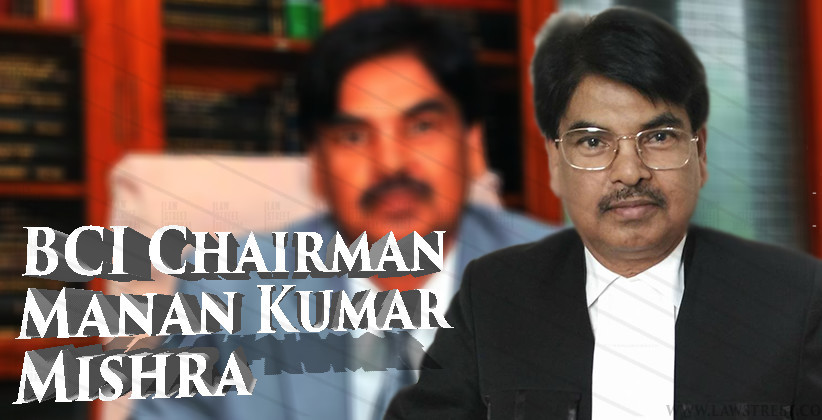WOICE in Law (Women of India for Collaboration and Empowerment in Law) on May 15, 2019, have addressed an open letter to Chairman of the Bar Council of India (BCI) Manan Kumar Mishra expressing deep concern over his recent misogynistic, irresponsible, generalised, regressive, legally and statistically uninformed statements.
In the open letter, the lawyers have stated that we have lately watched with deep concern, as you have made several reprehensible public statements which demonstrate a serious lack of principled leadership of the Bar, and a glaring lack of commitment to basic constitutional values of equality and non-discrimination, not to mention a glaring violation of your duties, as a lawyer, towards the pursuit of justice.
The letter criticizes Mishras recent call for support of a Men Too silent protest as well as certain statements made by Mishra in his earlier Appeal to the Members of the Legal Community.
Highlighting the statements, the letter condemned the statements, particularly:-
- The stereotyping and sweepingly prejorative generalisations regarding women made in your statement are extremely objectionable and undermine the small steps towards realising gender equality and justice, that have been made over several decades. The token reference to your "respect for women" is rendered hollow by the remainder of your Appeal, more so in the face of your evident suspicion of women complainants.
- Your statement appears to suggest that a proper application of the law would necessarily result in acquittals in 90% of the cases. You suggest that most complaints are malicious and that today's women complainants are more often than not, attempting to "falsely implicate their enemies". This statement exposes your personal misogynistic presumption that a woman's testimony is inherently unbelievable and maliciously motivated and ought not to be treated as evidence in a court of law. It is also factually inaccurate conviction rates have remained abysmally low, despite legal reform in the context of sexual offences. The NCRB 2016 data indicates that the conviction rate for rape cases was an abysmal 25.5% while in cases under S.354, conviction rates were only 21.8%.
- All your arguments wilfully ignore societal realities, the well documented and judicially recognised fact that complainants usually risk - shame, social ostracization and the potential ruinof their futures in coming forward to complain of sexual offences. Legal procedures require a complainant to subject herself to invasive (and often insensitive) scrutiny by the police and other State authorities, the defence counsel, the media and society at large. In view of this, survivors of sexual offences often prefer not to make complaints. Even in the small number of cases where complaints are in fact made, acquittals are more often than not a result of failures of the police and the prosecution to secure vital evidence, intimidation of witnesses and several other factors that are unfortunately endemic problems in our criminal justice system.
- It is shocking that you are calling for a limitation in the context of sexual offences, given that there is no limitation under criminal law in relation to offences affecting the human body, and it appears that the primary pretext for this demand from you, is not rooted in criminal law jurisprudence and research, but more an expression of your personal beliefs that seek to delegitimise the struggle and pursuit of justice sought by many who have been subject to sexual offences.
Further, the letter also stated that the Chairman has abused his position by using the letterhead of the Bar Council of India and addressing the appeal in his capacity as the Chairman of the BCI.
In view of the above, the lawyers sought from him to immediately, publicly retract the said Appeal, and to express public regret for the irresponsible, retrograde statements perpetuating misogynistic stereotypes.
The lawyers have also called upon him to step down from the position as Chairman of the BCI in light of his failure to provide principled leadership to the bar.









